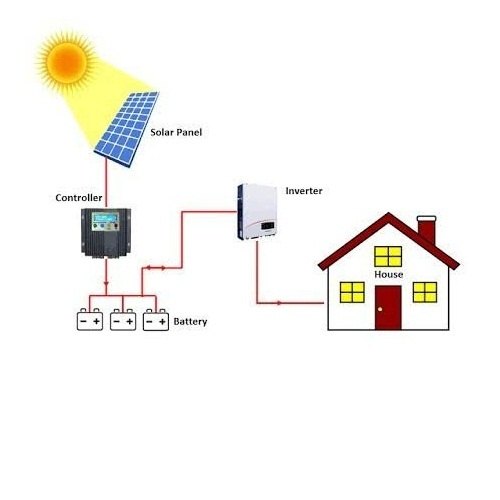Off-Grid Solar System: The Best Solar Energy Solution for Remote Areas
Off-grid solar systems have gained in popularity in recent years, particularly in remote areas where energy availability is limited. A stand-alone solar system, also known as an off-grid solar system, is an energy solution that generates electricity from solar panels, stores it in batteries, and operates appliances and devices without being connected to the national grid. This article will provide an overview of off-grid solar systems, including how they work and how they impact Pakistan.
What is an Off-Grid Solar System?
Off-grid solar systems provide a sustainable and cost-effective option for places that are not connected to the national grid or have frequent power outages. It has four essential components: solar panels, charge controllers, batteries, and inverters. Solar panels collect sunlight and convert it into direct current (DC) electricity, which is then delivered to the charge controller. The charge controller regulates the power flow to the batteries, preventing overcharging and damage.

How Off-Grid Solar System Works?
Off-Grid Solar panels create electricity, which is stored in batteries and used to power appliances and devices without connecting to the national grid. During the day, solar panels absorb sunlight and convert it to direct current power. The charge controller regulates the current flow to the batteries, ensuring that they are completely charged. The batteries store the energy generated by the solar panels, allowing appliances and devices to be operated during low-light hours or at night. The inverter converts the direct current (DC) electricity stored in the batteries into alternating current (AC), which may then be used to power appliances and devices.
Off-Grid Solar Systems in Pakistan
Pakistan has a large rural population, and many areas suffer from frequent power outages or lack access to electricity. In Pakistan, off-grid solar systems have grown as a sustainable and cost-effective technique of powering such sites. Many programmes have been launched by the Pakistani government to encourage the use of off-grid solar systems, including the Prime Minister’s Energy Initiative, which aims to supply power to rural areas using renewable energy sources.
Conclusion:
Off-Grid Solar Systems are a long-term, low-cost option for regions that are not connected to the national grid or endure frequent power outages. Off-grid solar systems have emerged as a viable option in Pakistan for supplying electricity to remote places and improving the living circumstances of the rural people. The use of off-grid solar systems is expected to increase as a consequence of the government’s efforts to promote renewable energy sources, resulting in a greener and more sustainable future.
